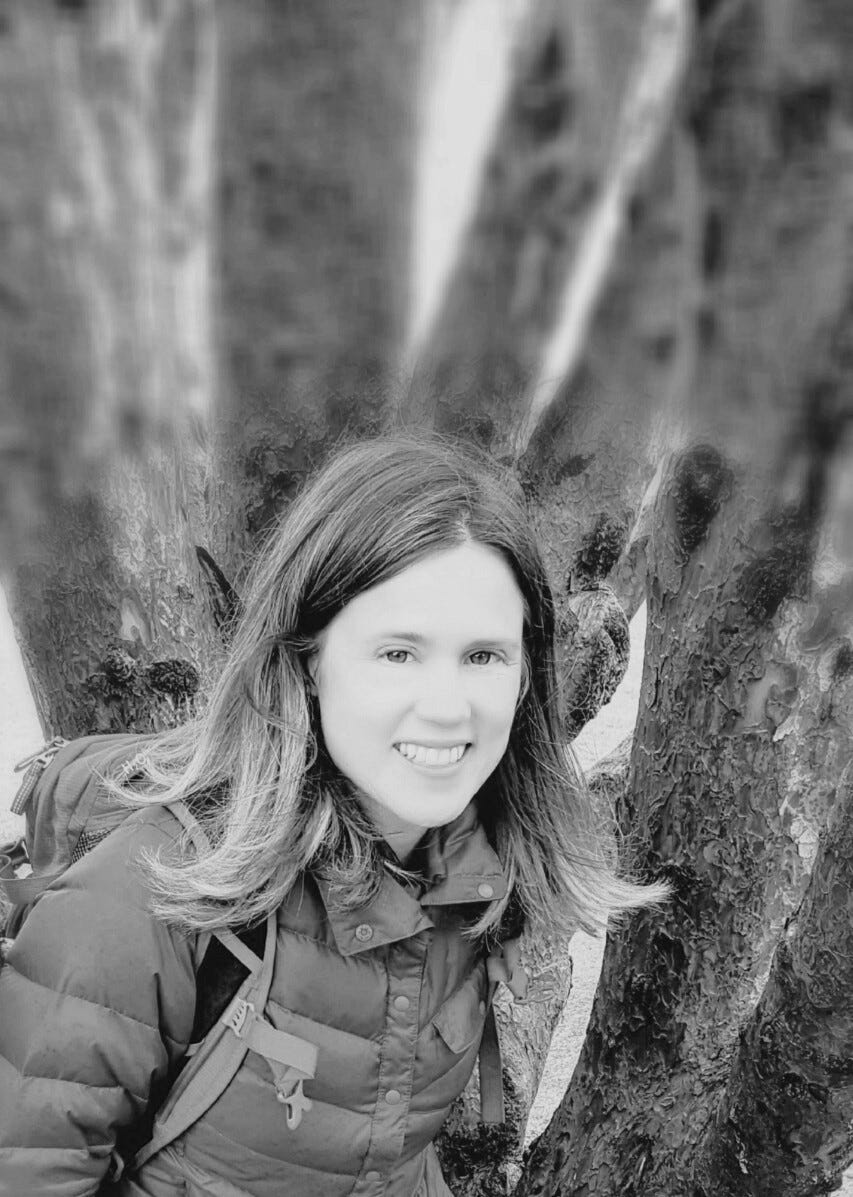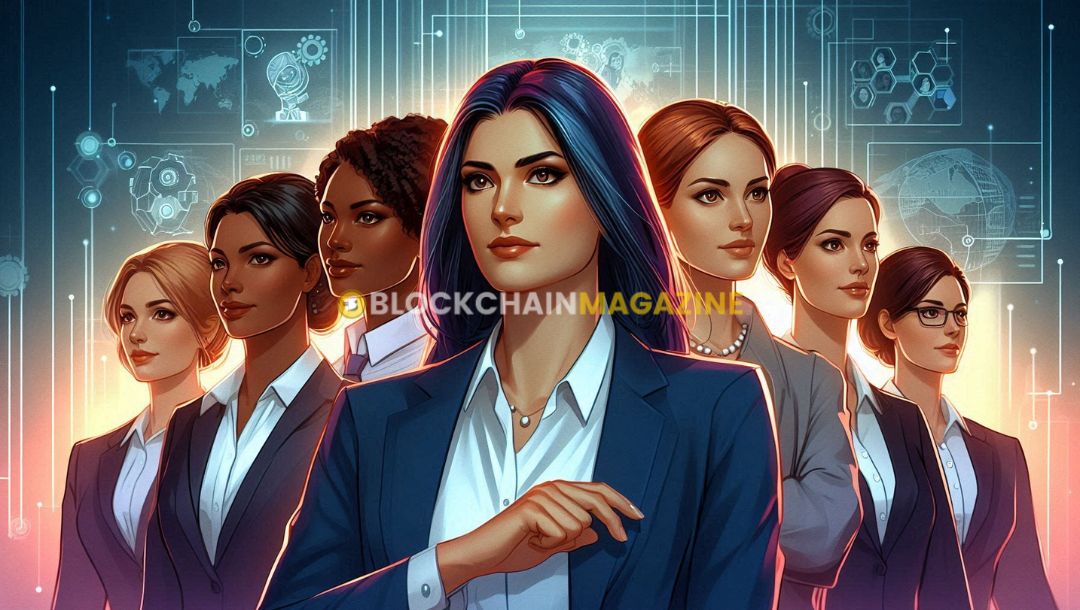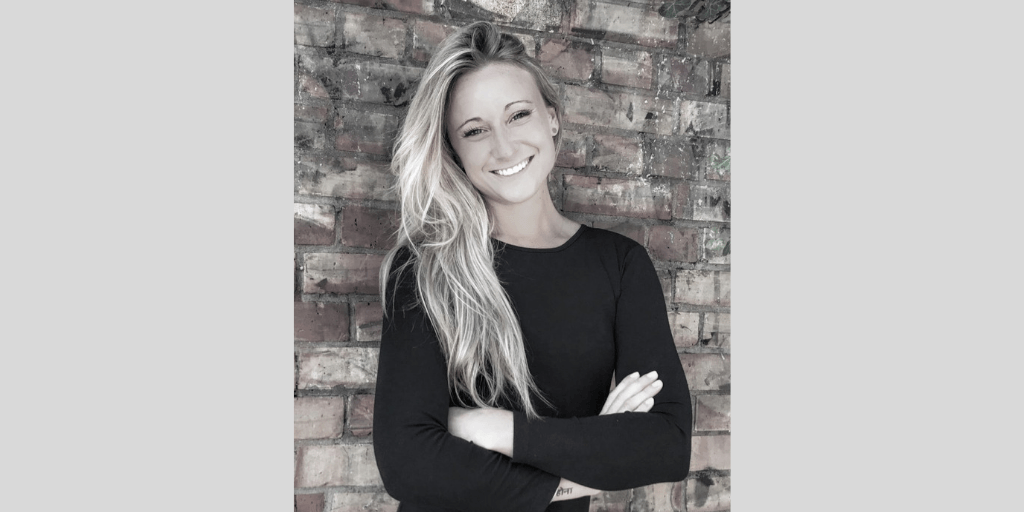Meet The Women Of The Blockchain: Intel’s Camille Morhardt
Camille Morhardt : “One thing I’m passionate about is advocating for inclusion and people embracing one another. I co-chair Intel’s Out & Ally Leadership Council, which works with the LGBTQ community and senior executives within the company to help create a sense of belonging for everyone. Of course, we start with data and recommended actions, but I think of those as checking the boxes. We strive for much, much more.
I had the pleasure to interview Camille Morhardt of Intel. Camille went from fiction writer to blockchain expert, pausing in the middle to start Intel’s first small business product line.
Thank you so much for doing this with us! What is your “backstory”?
I lead Intel’s Internet of Things blockchain strategy and co-chair Intel’s Out & Ally Leadership Council. But I didn’t start my career in technology. In fact, I grew up thinking I would be a fiction writer, having written short stories since I was 10. In college, I majored in International Relations so I could spend a semester in Japan. I wrote my thesis on structural corruption using the Yakuza as a case study and won the graduating class award for the best-written thesis. Then I became a professional writer for Stanford University. They asked me to write a book, which involved personally interviewing over 100 Silicon Valley technology leaders including engineers, CEOs, and Venture Capitalists, and I never looked back. Technology became my calling. I went to business school and looked for a “home” after graduating.
I felt like an imposter joining Intel with no background in engineering or manufacturing, but Intel embraced me. I like to distill complex concepts and their potential impact on simple ideas and stories. It turns out this ability also translates into starting and running product lines, and detecting and interpreting emerging trends. What I’d always shrugged off while pursuing other skills turns out to be my greatest talent, and a huge asset in my career.
Can you tell me about the most interesting projects you are working on now?
One project I’m working on is how blockchain will be a central part of the Internet of Things (IoT). As IoT evolves, I’m interested in how “things”, some of which we will expect to coordinate and transact on our behalves autonomously, might rely on blockchain to establish trust without an intermediary.
None of us are able to achieve success without some help along the way. Is there a particular person who you are grateful towards who helped get you to where you are? Can you share a story about that?
My best friend majored in the least lucrative subject possible, Medieval History, and then went on to become a pro baseball player in the Czech Republic, and then a potter. I made fun of him constantly for making himself less and less relevant, but he continued to do what he loved and remains very supportive of my work. Now he’s a tenured professor at UCLA, and I am grateful to him for demonstrating that following your passion not only leads to relevancy as you get good at it but also is directly relevant always, in that it is rewarding to you every step of the way.
What are the 5 things that most excite you about blockchain and crypto? Why?
- What excites me the most is its potential to be commonplace. We now have another way to track assets and store data — one that is incredibly difficult to tamper with, and lets strangers interact without an intermediary.
- Blockchain will ultimately facilitate an entirely new kind of exchange: an exchange of data, goods, currency, or energy on a platform ruled by none and governed by all who use it. I can’t think of a more democratic technology application.
- Blockchain beyond cryptocurrency has really exciting use cases. You can trace the origin of anything including food or medicine or even ideas. It gives people a lot of transparency. One thing we’re working on at Intel is using blockchain to help provide better traceability within the pharmaceutical supply chain, which can help eliminate fraud and abuse.
What are the 5 things worry you about blockchain and crypto? Why?
- Broadly adopted technologies that the vast majority of users don’t understand are always concerning. It will be especially important, as we take the next steps in IOT and expect some “Things” to act autonomously on our behalves, that we have insight into how they make their decisions so that we can correct for any unintended biases or mistakes. Blockchain can help, if we set it up right.
- Data on a blockchain still must be good and meaningful data — just because it can’t be tampered with doesn’t mean that it’s foolproof.
- Smart contracts, which run on blockchains, literally codify agreements, and self-execute. Humans are bad at forecasting the unknown and planning for contingencies; so we may need to build in the capability to revoke or reverse actions taken by smart contracts.

How have you used your success to bring goodness to the world? Can you share a story?
One thing I’m passionate about is advocating for inclusion and people embracing one another. I co-chair Intel’s Out & Ally Leadership Council, which works with the LGBTQ community and senior executives within the company to help create a sense of belonging for everyone. Of course, we start with data and recommended actions, but I think of those as checking the boxes. We strive for much, much more.
What 3 things would you advise someone who wanted to emulate your career? Can you share an example for each idea?
- When I wrote a book for Stanford University that involved personally interviewing more than 100 Silicon Valley technology leaders, I asked each one of them the same question at the end of the interview. I asked them what their advice is to young people. Every single one of them said: “Do what you love.” I think that’s worthy of repeating. It worked for them. It’s working for me. I think it might actually work for everyone.
- Love your belt. My son’s Judo Sensei awarded some students higher levels of belts at a ceremony once. I looked over at my son, who was the smallest person in the class, and still very much a white belt, to see his disappointment. Then the Sensei addressed the whole room and said something like: “You know, now that I’m a black belt, I can never go back to being a white belt. And sometimes, I just wish I were a white belt again because there is something wonderful about each stage of learning. So wherever you are, love your belt.” He is right. No matter who you’re working with, the most senior or the most inexperienced, I promise there is something for which they are the black belt and you the white belt, and something else for which it is reversed.
- Be kind and competent. At this point in my career, I refuse to work with anyone who isn’t both kind and competent. When I have created or joined teams in which every person in them meets these two criteria, I have always made the right decision. And for those teams, the sky is the limit, because all the energy gets aggregated into human support and project delivery.
Some of the biggest names in Business, VC funding, Sports, and Entertainment read this column. Is there a person in the world, or in the US whom you would love to have a private breakfast or lunch with, and why? He or she might just see this :-)
Annie Proulx. She writes the real.
Stay informed with daily updates from Blockchain Magazine on Google News. Click here to follow us and mark as favorite: [Blockchain Magazine on Google News].
Get Blockchain Insights In Inbox
Stay ahead of the curve with expert analysis and market updates.
latest from tech
Disclaimer: Any post shared by a third-party agency are sponsored and Blockchain Magazine has no views on any such posts. The views and opinions expressed in this post are those of the clients and do not necessarily reflect the official policy or position of Blockchain Magazine. The information provided in this post is for informational purposes only and should not be considered as financial, investment, or professional advice. Blockchain Magazine does not endorse or promote any specific products, services, or companies mentioned in this posts. Readers are encouraged to conduct their own research and consult with a qualified professional before making any financial decisions. The featured image used is just a creative depiction of the title and it does not intend to hurt sentiments of any person or institution. If it hurts anyone sentiments, please do not hesitate to reach out to Blockchain Magazine.

 Bitcoin
Bitcoin  Ethereum
Ethereum  XRP
XRP  Tether
Tether  Solana
Solana  Dogecoin
Dogecoin  USDC
USDC  Cardano
Cardano  Lido Staked Ether
Lido Staked Ether  TRON
TRON  Chainlink
Chainlink  Avalanche
Avalanche  Wrapped stETH
Wrapped stETH  Stellar
Stellar  Wrapped Bitcoin
Wrapped Bitcoin  Sui
Sui  Hedera
Hedera  Toncoin
Toncoin  Shiba Inu
Shiba Inu  WETH
WETH  Polkadot
Polkadot  Parkcoin
Parkcoin  LEO Token
LEO Token  Bitget Token
Bitget Token  Litecoin
Litecoin  Bitcoin Cash
Bitcoin Cash  Uniswap
Uniswap  Hyperliquid
Hyperliquid  Official Trump
Official Trump  Wrapped eETH
Wrapped eETH  Pepe
Pepe  USDS
USDS  NEAR Protocol
NEAR Protocol  Ethena USDe
Ethena USDe  Aave
Aave  Aptos
Aptos  Internet Computer
Internet Computer  Ondo
Ondo  Ethereum Classic
Ethereum Classic  Monero
Monero  POL (ex-MATIC)
POL (ex-MATIC)  OKB
OKB  Cronos
Cronos  Dai
Dai  Mantle
Mantle  Algorand
Algorand  Render
Render  MANTRA
MANTRA 




